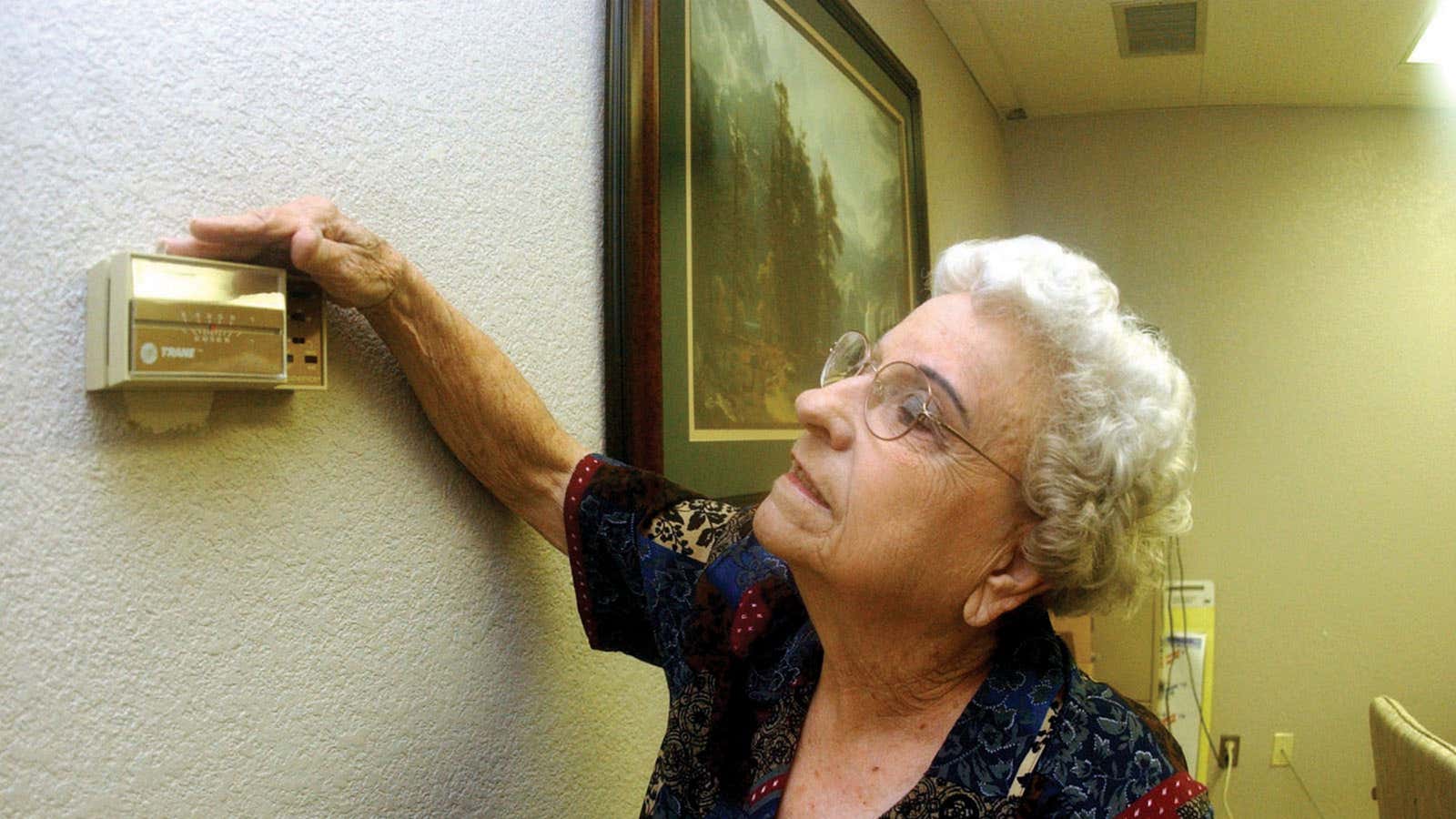In the aftermath of Edward Snowden’s disclosures about alleged surveillance programs by the National Security Agency, it’s tempting to undertake a wholesale rethink of your online behavior, get a burner phone and install new e-mail tools, or just cut the cord entirely—except even that may not keep away the gaze of surveilling parties. Just living in a modern, equipped home is enough to create multiple peepholes for the government, or even foreign hackers, to figure out what you’re doing.
Last spring, then-CIA director David Petraeus touted the opportunities that the so-called internet of things, from embedded sensors in cars to radio tags on consumer products to a house full of smart appliances such as connected dishwashers and clothes dryers, would bring for collecting data and monitoring of targets.
“In practice, these technologies could lead to rapid integration of data from closed societies and provide near-continuous, persistent monitoring of virtually anywhere we choose,” Petraeus told assembled engineers and investors. (Of course, these comments were made just as his own clandestine affair with Paula Broadwell was being unraveled based on the metadata their communication was generating.)
This ability to tap and monitor internet-connected devices is, of course, made even easier through the flood of smartphone apps that allow us to control these devices remotely—adding a phone into the mix provides lots of valuable location and call data, along with expanding the loop of connectivity among the user, the devices, and the surveilling party. The more you light up, the more “they” can see.
While this admission of interest set hair on fire across the realm of conspiracy theorists at the time (and looks increasingly sinister now), it doesn’t even paint the extent to which even the relatively unwired home can be listened to. Some groups have claimed for years, for example, that our lowly, ink-sucking computer printers are betraying us, even without an internet connection—through the use of supposed secret microdots that allow a printed item to be traced back to its printer of origin.
Fine, don’t print, just draw the curtains, microwave some popcorn and watch your old DVD of The Bourne Identity, right? Wrong. Researchers in Germany deduced in 2011 that careful analysis of electricity usage patterns in very small intervals could be used to determine what TV show you are watching—and even if your un-smart appliances are running. Small variations in voltage use based on patterns of light and other variations in TV activity can be correlated with those of a particular program if that program has been analyzed as well for the variations it can produce.
This research was based on data reported by a so-called smart meter, which monitors electricity usage and shares that data with the consumer as well as the power company, but that step simply made it easier to collect remotely. In 2011, it was revealed that Chinese hackers had attacked the US Chamber of Commerce, including a thermostat in a townhouse owned by the Chamber, which, when checked, reported a connection to an IP address in China.
Privacy nuts and smart meters go way back in a battle that has been well documented, but recent events add fuel to the already burning fire. They also happen do so at a time when we are being sold an entirely new realm of smart devices, full-featured home security, and smartphone apps that control everything under the sun. Fast forward to the next generation of surveillance.
Of course, it doesn’t have to be a government or shadow army of foreign hackers that take you down—it could be a local school district, a rental company or disgruntled ex-employee that keeps an eye on you at your desk, stalks your jog, or turns your lights out. So go on, double check that bag of popcorn before you fire it up.




